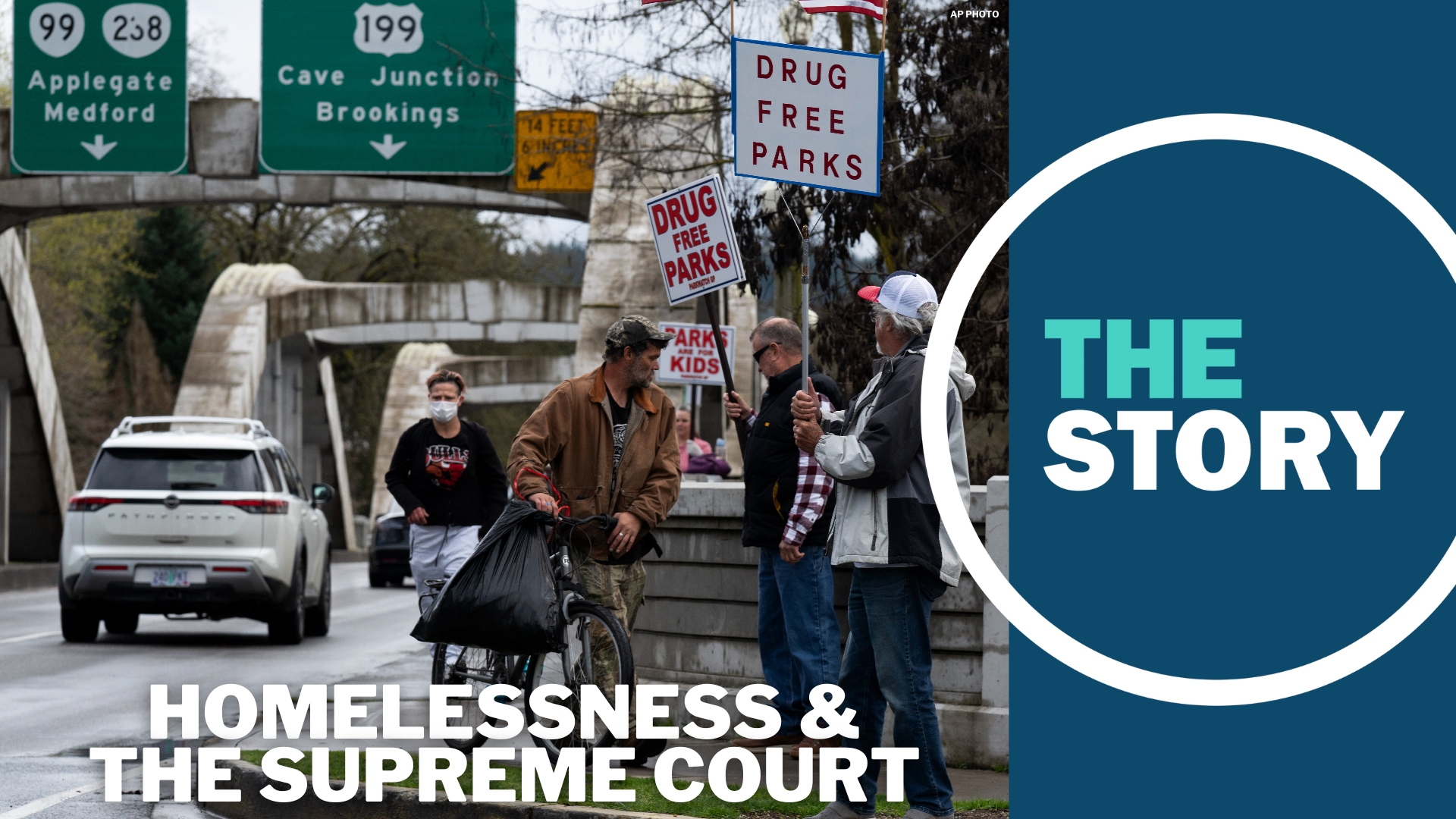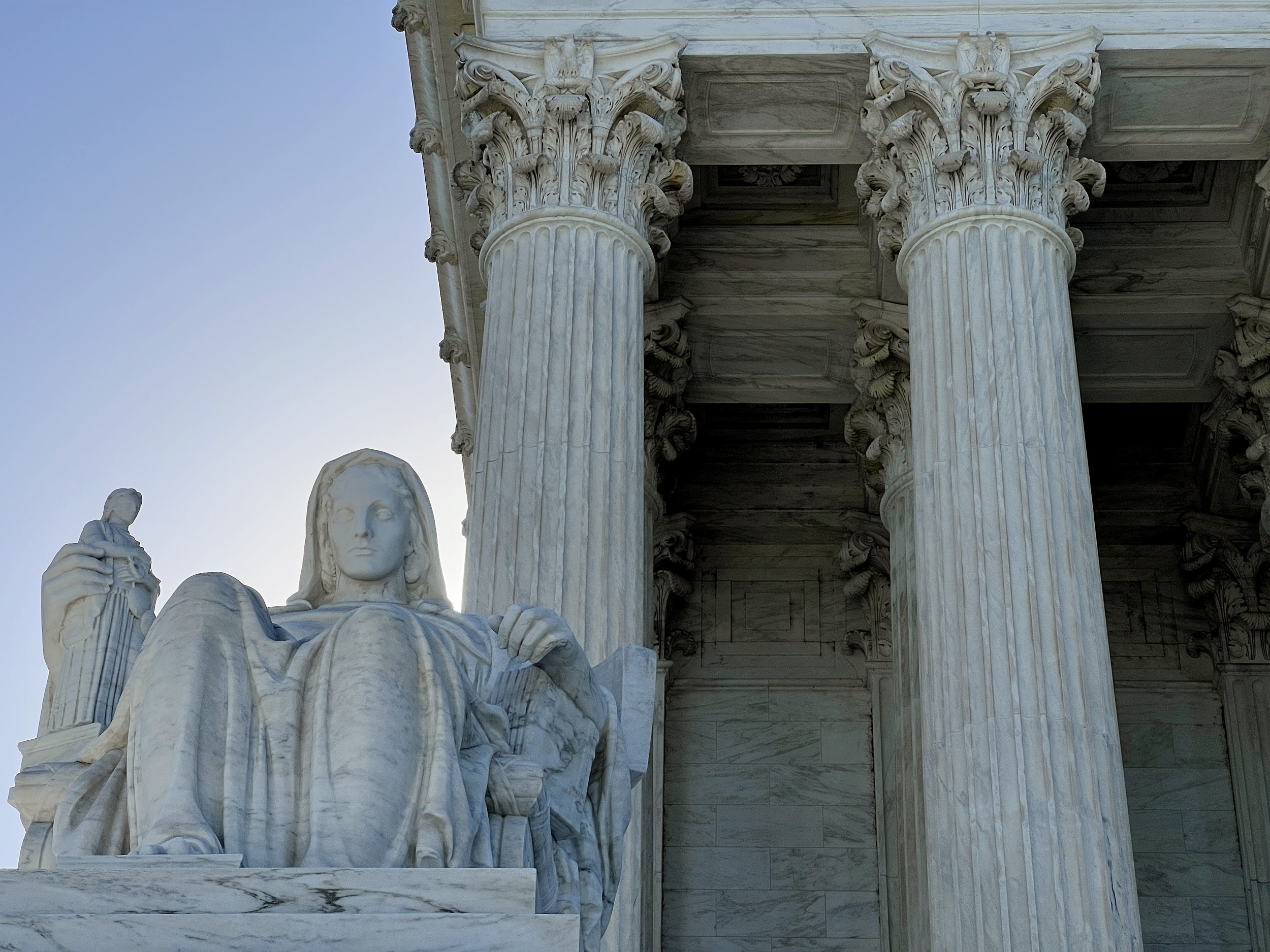Supreme Court Cases Related to Grants Pass

Grants pass supreme court – The Supreme Court of the United States has adjudicated several cases that have had a direct impact on Grants Pass, Oregon. These cases have addressed issues ranging from land use and environmental protection to civil rights and criminal justice.
The Grants Pass Supreme Court is a court of last resort for the state of Oregon. It has the power to overturn lower court decisions, and its decisions are binding on all other courts in the state. The court follows the doctrine of stare decisis , which means that it generally adheres to its previous decisions.
This doctrine helps to ensure that the law is stable and predictable.
One of the most significant Supreme Court cases related to Grants Pass is Oregon v. Ashcroft (2004). In this case, the Court ruled that the federal government could not prevent Oregon from legalizing the use of medical marijuana. This decision had a major impact on Grants Pass, which is home to a number of medical marijuana dispensaries.
Grants Pass Supreme Court, known for its landmark rulings, has also grappled with the complexities of administrative law. In a case involving environmental regulations, the court invoked the chevron decision , which established a framework for judicial deference to agency interpretations of ambiguous statutes.
By applying this precedent, the court sought to balance the need for judicial review with the expertise of administrative agencies, ensuring that Grants Pass Supreme Court remains a beacon of balanced and informed jurisprudence.
Another important Supreme Court case related to Grants Pass is City of Grants Pass v. Sidley (2008). In this case, the Court ruled that the city could not ban panhandling in public places. This decision was a victory for the homeless population in Grants Pass, which has one of the highest rates of homelessness in Oregon.
The Grants Pass Supreme Court case highlighted the importance of judicial deference to agency interpretations of law. This principle, known as the “Chevron deference,” was established in the Supreme Court’s Chevron decision. The chevron decision requires courts to defer to an agency’s reasonable interpretation of a statute if it is within the scope of the agency’s authority.
This deference is essential for ensuring that agencies can effectively implement complex statutory schemes and for maintaining a consistent and predictable regulatory environment.
Oregon v. Ashcroft (2004)
In 1998, Oregon voters passed the Oregon Medical Marijuana Act (OMMA), which legalized the use of medical marijuana. The federal government challenged the OMMA, arguing that it violated the Controlled Substances Act (CSA). The Supreme Court ruled in favor of Oregon, holding that the CSA did not preempt the OMMA.
The Grants Pass Supreme Court case, a landmark decision that upheld the rights of religious minorities, has been a subject of much debate. In the wake of the decision, Thomas Massie , a Republican congressman from Kentucky, has been vocal in his support for the ruling.
Massie has argued that the decision is a victory for religious freedom and that it will help protect the rights of all Americans. The Grants Pass Supreme Court case has far-reaching implications for the future of religious freedom in the United States, and it is likely to continue to be debated for years to come.
The Oregon v. Ashcroft decision had a major impact on Grants Pass, which is home to a number of medical marijuana dispensaries. The decision allowed these dispensaries to continue operating, providing a valuable service to patients who rely on medical marijuana for pain relief and other medical conditions.
City of Grants Pass v. Sidley (2008)
In 2004, the City of Grants Pass passed an ordinance that prohibited panhandling in public places. The ordinance was challenged by several homeless individuals, who argued that it violated their First Amendment rights. The Supreme Court ruled in favor of the homeless individuals, holding that the ordinance was an unconstitutional restriction on free speech.
The City of Grants Pass v. Sidley decision was a victory for the homeless population in Grants Pass. The decision struck down an ordinance that had been used to harass and intimidate homeless people. The decision also helped to raise awareness of the issue of homelessness in Grants Pass and led to increased efforts to provide services to the homeless population.
Legal Precedents Set by Grants Pass Supreme Court Cases

Supreme Court cases related to Grants Pass have established significant legal precedents that have shaped the legal landscape. These precedents have had a profound impact on various areas of law, including property rights, environmental protection, and civil rights.
One of the most important precedents set by Grants Pass Supreme Court cases is the establishment of the “public trust doctrine.” This doctrine holds that certain natural resources, such as water and air, are held in trust by the government for the benefit of the public. This precedent has been used to protect public access to waterways, prevent pollution, and preserve natural resources for future generations.
Property Rights
Grants Pass Supreme Court cases have also established important precedents in the area of property rights. In the case of Lucas v. South Carolina Coastal Council, the Court ruled that the government cannot take private property without just compensation, even if the taking is for a public purpose. This precedent has been used to protect property owners from government overreach and has helped to ensure that private property rights are respected.
Environmental Protection
In addition to property rights, Grants Pass Supreme Court cases have also established important precedents in the area of environmental protection. In the case of Massachusetts v. Environmental Protection Agency, the Court ruled that the EPA has the authority to regulate greenhouse gas emissions under the Clean Air Act. This precedent has been used to combat climate change and protect the environment.
Civil Rights
Finally, Grants Pass Supreme Court cases have also established important precedents in the area of civil rights. In the case of Brown v. Board of Education, the Court ruled that racial segregation of public schools is unconstitutional. This precedent has been used to desegregate schools and promote equal access to education for all students.
The legal precedents set by Grants Pass Supreme Court cases have had a profound impact on the legal landscape. These precedents have protected property rights, the environment, and civil rights. They have also helped to ensure that the government is accountable to the people.
Local Impact of Grants Pass Supreme Court Cases

The Supreme Court cases related to Grants Pass have had a significant local impact, affecting the community, businesses, and individuals in various ways.
One of the most notable cases was the 2015 Supreme Court decision in Obergefell v. Hodges, which legalized same-sex marriage nationwide. This decision had a major impact on the Grants Pass community, as it allowed same-sex couples to marry and enjoy the same legal rights and benefits as heterosexual couples.
Economic Impact
The legalization of same-sex marriage has had a positive economic impact on Grants Pass. The influx of same-sex couples seeking to marry and celebrate their weddings has boosted the local economy, particularly in the wedding and tourism industries.
Social Impact
The Obergefell decision has also had a significant social impact on Grants Pass. It has helped to create a more inclusive and welcoming environment for LGBTQ+ individuals, and has led to increased visibility and acceptance of same-sex relationships.
Challenges and Opportunities, Grants pass supreme court
While the Obergefell decision has been widely celebrated, it has also presented some challenges for the Grants Pass community. Some religious organizations have objected to the decision, and there have been instances of discrimination against same-sex couples.
However, the decision has also created opportunities for dialogue and understanding. It has forced the community to confront its own biases and prejudices, and has led to a greater awareness of the importance of LGBTQ+ rights.
The Grants Pass Supreme Court, known for its landmark rulings, draws parallels to the Chevron decision of the Supreme Court. Just as the Chevron decision established judicial deference to agency interpretations of ambiguous statutes, the Grants Pass Supreme Court has emphasized the importance of respecting the expertise of administrative bodies in their respective fields.
This deference has fostered consistency and predictability in legal decision-making, ensuring that the intent of the law is upheld while allowing for flexibility in its application.